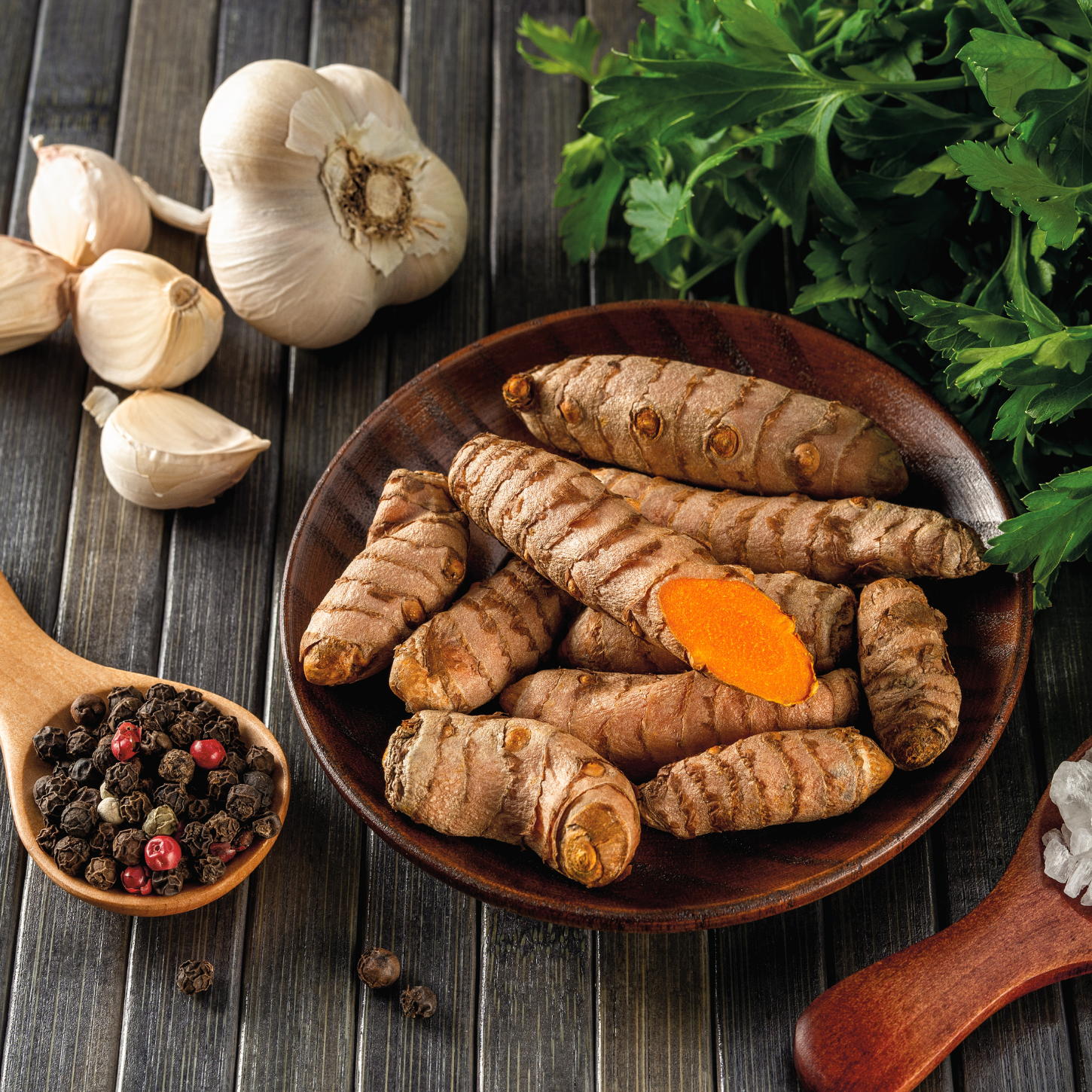Have you heard of the tiny troublemaker that's been making a home in our bellies - the notorious Helicobacter pylori?
This microscopic mischief-maker, known in the 'biz as H. pylori, has set up camp in about half the world's stomachs. For some, it's a silent roommate, but for others, it's the unwanted guest causing a ruckus in the form of ulcers, inflammation, and even upping the stakes to stomach cancer.
Now, you might be thinking, "Why should I care about this microscopic menace?"
Well, let me tell you, ignoring H. pylori is like ignoring a leaky faucet - it might seem small at first, but leave it unchecked, and you're in for a world of trouble.
Conventional treatments often involve a cocktail of antibiotics and acid-reducing medications, but these can sometimes feel like using a sledgehammer to crack a nut, not to mention the side effects and the growing issue of antibiotic resistance.
But fear not! From tweaking your diet to certain herbs and probiotics, there is a treasure trove of natural strategies to combat this bacterial bad boy.
So, are you ready to embark on this journey with us? In this blog, we'll be your guide, exploring these natural remedies and showing you how to harness their power to reclaim your health.
Let's get this party started!
Table of Contents:
What Is Helicobacter Pylori?
Let's start by getting to know our adversary a little better. Helicobacter pylori, or H. pylori as it's commonly known, is a spiral-shaped bacterium that thrives in the harsh acidic environment of your stomach. It's a crafty little critter, burrowing into the stomach lining where it's protected from stomach acids, and that's where the trouble begins.
Now, you might be wondering, "How do I know if I have an H. pylori infection?" Great question! The tricky part is that H. pylori often plays the silent invader, causing no symptoms in most people. However, when it does decide to make its presence known, it can lead to various symptoms, including:
- abdominal pain
- bloating
- frequent burping
- loss of appetite
- nausea
- unexplained weight loss
- difficulty swallowing
- severe abdominal pain
- bloody or black tarry stools.
Ignoring these symptoms can lead to a host of complications. We're talking about ulcers in your stomach or small intestine, inflammation of the stomach lining (gastritis), and in rare cases, certain types of stomach cancer.
In fact, the World Health Organisation has even classified Helicobacter pylori as a class I carcinogen!
Apart from digestive issues, a growing number of health complications outside the digestive system are being linked to H. pylori infection. These encompass a range of skin conditions, joint issues, uveitis (inflammation of the eye), various autoimmune disorders, such as autoimmune thrombocytopenia, and even diabetes.
So, it's safe to say that H. pylori is not a guest you want overstaying its welcome in your stomach.
Diagnosis
Diagnosing a Helicobacter pylori infection can be done through several methods, each with its own pros and cons. The most common tests include the breath test, which detects carbon molecules released by H. pylori in your breath, and the blood test, which checks for H. pylori antibodies. However, this test cannot differentiate between a current or past infection. Stool tests are used to identify active infections by detecting H. pylori antigens.
If you have a really bad case, then an endoscopy may be performed to visually inspect your stomach and small intestine and collect tissue samples. This is the gold standard for diagnosis but is not often the preferred test as it’s invasive and does not come without risks. The choice of test depends on various factors such as your symptoms, age, and overall health.
Conventional Treatment
Typically, doctors wage a two-pronged attack against this stubborn bacterium. The first line of defense is a combination of antibiotics to kill the bacteria, and the second is medication such as proton pump inhibitors (PPIs) to reduce stomach acid, creating an inhospitable environment for H. pylori. However, these do not come without their side effects and long-term health impacts. These can range from mild nuisances like nausea, diarrhea, and a metallic taste in the mouth, to more serious issues like malabsorption issues and allergic reactions.
Although it's not a common occurrence, it's possible to get reinfected with H. pylori even after undergoing antibiotic therapy. Such treatment can also disrupt the balance of your gut microbiota, leading to an increase in antibiotic-resistant bacteria and yeast infections.
Moreover, there's a widespread agreement in the medical community that we need to cut back on our use of antibiotics. This is a crucial step in fighting the growing problem of antibiotic-resistant bacterial infections globally.
Natural Treatment For H. Pylori
But fear not! There are plenty of ways you can tweak your diet to fight against this bacterial foe.
Diet
The journey to overcome an H. pylori infection starts with the cornerstone of any health journey - a balanced diet. While diet alone cannot completely eliminate this bacterium, a well-balanced diet, particularly one rich in fruits and vegetables, can provide a protective shield against the effects of H. pylori infection.
It’s important to remove foods that promote inflammation and ones that create a more hospitable environment for H. pylori to thrive, such as processed foods, alcohol, dairy, and sugar. Eating smaller meals more frequently can help alleviate symptoms in some people, as can avoiding caffeine, carbonated drinks, and spicy foods.
Several foods can be your allies in your fight against H. pylori. Foods rich in antioxidants, like colorful fruits and vegetables, whole grains, and lean proteins, can help strengthen your immune system and fight off H. pylori. These foods can also help prevent the development of gastric cancer, which is an important aspect to consider for H. pylori treatment.
Nutrient deficiencies are not uncommon in H. pylori infection. Key nutrients to focus on including in your diet are vitamins B12, C, E, and iron.
Vitamin C, known for its antioxidant properties and ability to regulate the immune system, can help prevent H. pylori infections and can even enhance the effectiveness of conventional treatments. It also acts as a treatment by blocking certain enzymes, helping to produce collagen (a protein that helps heal the body), and stimulating the production of certain compounds that help fight inflammation. While more research is needed, current studies show a clear link between higher levels of vitamin C and the body's ability to fight off H. pylori infections.
Alongside vitamin C, zinc carnosine is important to help mucus membranes to function at their highest level. The mucus barrier is essential to protect from infections such as H. pylori, and it’s also important for wound healing and immune function.
Polyphenols, plant compounds with remarkable anti-inflammatory and antioxidant properties, are also a great addition. Recent research shows that polyphenols found in curcumin, cranberry, garlic, licorice, and the humble broccoli can effectively combat H. pylori infection.
Broccoli also contains sulforaphane, a sulfur-rich compound, which not only boosts your body’s antioxidant production, but it also puts the brakes on the growth of various micro-organisms. It also has anti-inflammatory and anti-cancer effects and can inactivate the urease enzymes, which prevents H. pylori from surviving in the acidic environment of the stomach.
How much do you need? Not much, In fact, studies show that the equivalent of half a cup of broccoli sprouts daily over 8 weeks improved gastritis and reduced H. pylori colonization.
Final Thoughts
But wait, before you head to the grocery store to grab some humble broccoli, there’s so much more you can add to your arsenal in the form of herbal remedies!
In our next blog, we’re going to be covering the top natural remedies you can use to help you fight against this stubborn bacterium.
Remember, while H. pylori might be common, it's not invincible. With the right tools, strategies, and guidance, you can reclaim your health and keep H. pylori at bay.
Recipe Spotlight: Turmeric & Vegetable Tofu Scramble
Dive into a morning delight with recipe. This isn't just any breakfast dish; it's a protein-rich vegan wonder infused with the anti-inflammatory benefits of turmeric. The hearty tofu pairs beautifully with fresh veggies, ensuring that every bite is a perfect blend of health and flavor. Get ready to elevate your breakfast experience as we explore this tantalizing tofu treat that promises both nourishment and taste in every forkful! Enjoy!
















What Do You Think? Comment Below: